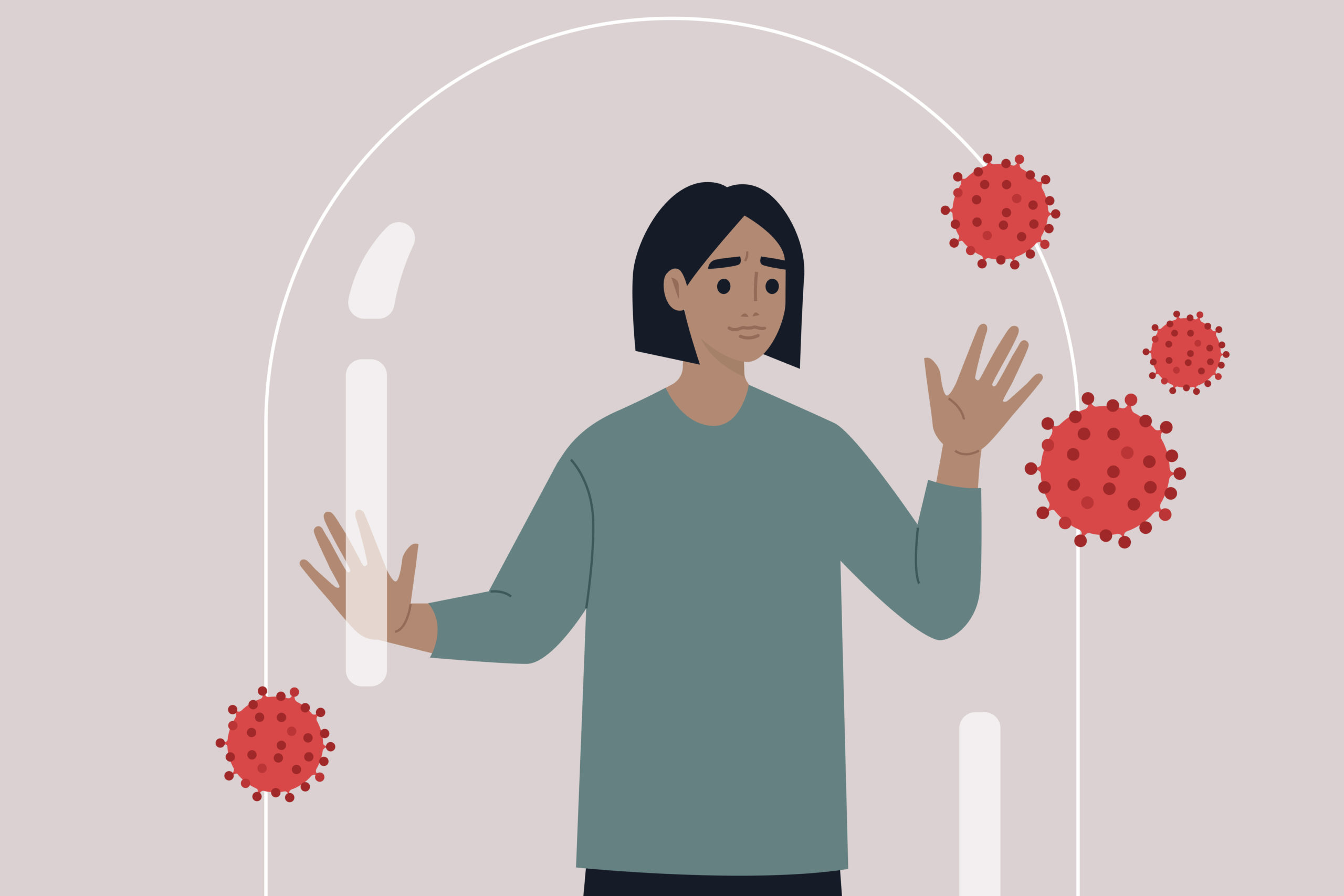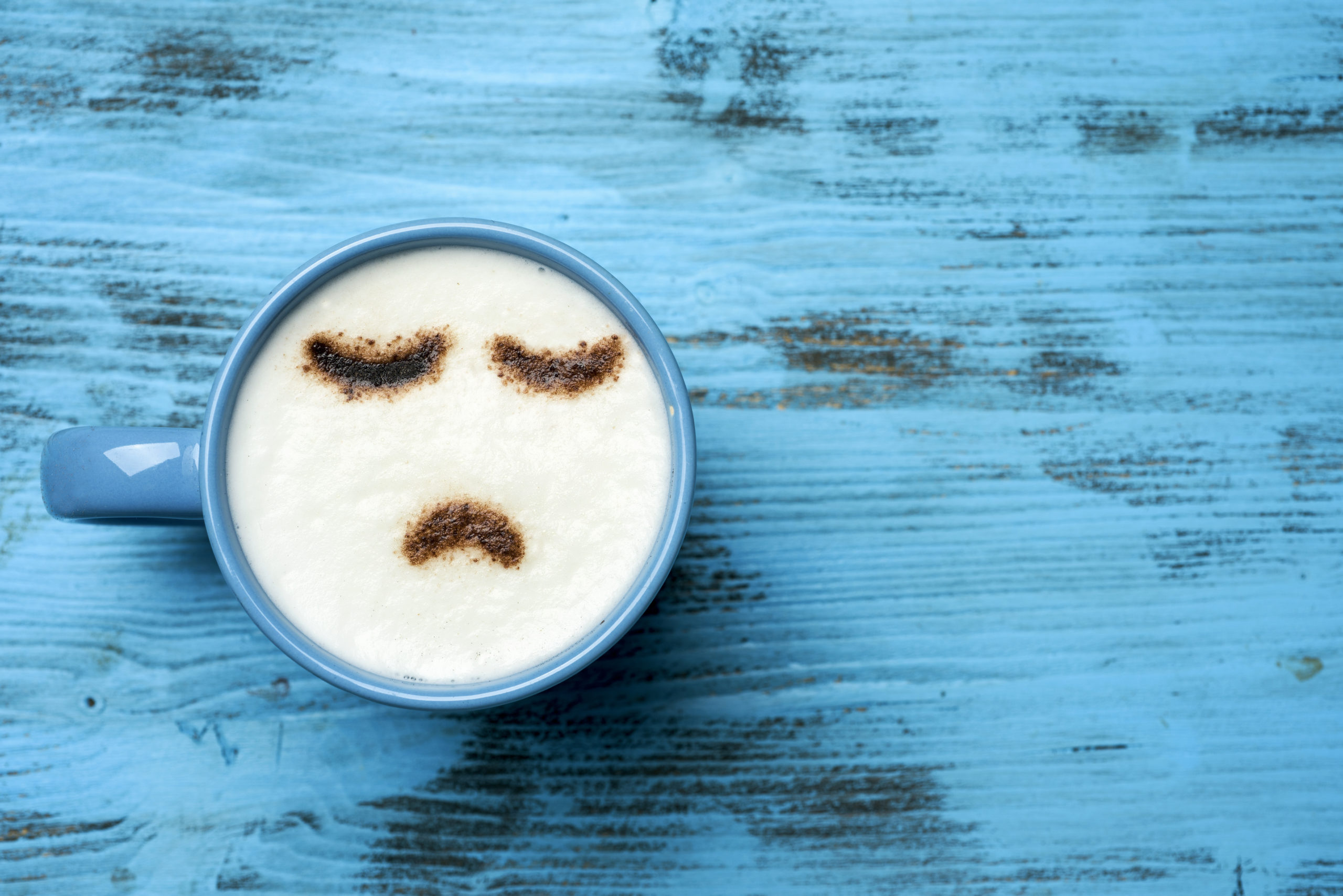Stress is a constant companion throughout life, it’s something which is unavoidable. That doesn’t change as we get to midlife, with the obligation of children, bills to pay, a career to maintain, parents to look after or the physical and emotional changes we undergo, middle age is certainly full-on.
Stress can be one of the worse things that affects our body, mind and appearance.
When we’re chronically exposed to high levels of stress we not only feel run down but there are a few visual indicators which arise when everything gets a bit too much.
The stereotypical representation of a chronically stressed person is very similar to someone that’s ill, with the flu or fever. Red rings envelope the eyes, our skin becomes a sickly pale tinge, hair is dull and nails are brittle. We can’t seem to function, our thoughts are slow and groggy, we’re tired all the time and focusing for more than a split second seems impossible.
Chronic stress shows all the signs of illness, yet why isn’t treated as such?
If we had a virus, stomach bug or fever, we’d take a few days out, buy vitamins, herbs and remedies to help us get better, but too often we overlook stress as if it’s normal, when it can really take a toll on our wellbeing.
So what does stress look like?
- Under eye bags
We lose sleep when we’re stressed, lying in bed anxious and worrying about the tasks ahead. Stress interrupts your body’s parasympathetic nervous system transition to a tranquil state needed for sleep and as a result doesn’t shut down and keeps us awake. The lack of shut-eye shows itself in our eyes as bags and dark circles form.
- Skin becomes dull
Cortisol can throw the body’s hormonal and chemical balance off which results in breakouts. This increase in cortisol also affects the blood flow to your skin, meaning loss of nutrients, causing a dull complexion.
- Hair loss
Elevated levels of stress cause your hair follicles to switch from the growing phase to the resting phase which causes loss of hair.
The pro-inflammatory chemicals released by stress affect your scalp’s health which stalls the healthy growth of your hair and robs youre strands of their shine.
- Weight gain
Stress leads to inactivity. We’re exhausted from lack of sleep and low energy levels, the last thing we want to do is go out and exercise.
Additionally, we turn to eating. Foods have been shown to be a coping tool towards stress and we often experience higher levels of hunger when we’re stressed out.
7 Tips To Manage Stress
There are many ways to manage stress, which ironically most of us are already aware of.
It’s a failure to recognise stress or be proactive towards it that perpetuates the cycle. So first and foremost we need to take a step back from the bustle of life.
Some simple stress relievers that are worth a try:

1. Slow breathing
When we’re stressed we take short and abrupt breaths or even hold our breath without noticing. To counter this, slow breathing will help us de-stress by slowing the heart rate and lowering blood pressure
See our interview with life coach, Gail Macindoe on how to master your breathing.
2. Exercise
Physically exerting yourself is a great way to let off some steam. It also releases endorphins which makes us feel good and reduces stress.
Exercise provides some protection against other chronic diseases such as adult-onset diabetes, arthritis, hypertension, certain cancers, osteoporosis, and depression. Research has also proven that exercise can reduce tension and stress. Overall it’s is one of the best things you can do for your health. You can maintain an active sex life, keep fit and enjoy yourself as you mature.
3. Stay Present
When we focus on the present and our awareness of what’s currently going on around us we feel more relaxed. This helps take our mind away from future worries and past problems and the other little niggles in the back of our minds.
4. Laugh
Take a break and watch some funny compilations on YouTube. Believe it or not, they’re good for us. Laughter increases endorphins and lowers cortisol which will reduce stress and improve our mood.
5. Get away
Go out for a little while, walk through a forest or park. Nature is proven to reduce stress and improve mood, Steven A. Military Family Clinic at NYU Langone Medical Center explains, “It [nature] reduces cognitive fatigue and stress and can be helpful with depression and anxiety.”
6. Eat healthy
Superfoods are more effective at combating stress than comfort foods. A nutritious and antioxidant-rich diet helps nourish the body and reduces the effect of stress.
7. Open up
Explore, accept and share your feelings; allow yourself to reflect on your life regularly; devote extra time to your partner and rekindle your relationship; set new goals and develop new hobbies; travel; volunteer; make time to your children; take care of your mental health (and join a group or seek out a therapist if necessary).
Just like every phase of life, midlife brings its own stresses and is a time of emotional and physical change. And although it can be stressful, with a positive attitude and a plan you can open up new opportunities without letting stress get the better of you.
Like what you see? Why not sign up to our weekly newsletter with the button below to keep up to date with our latest content and follow us on Facebook, Twitter and Instagram for regular updates.





